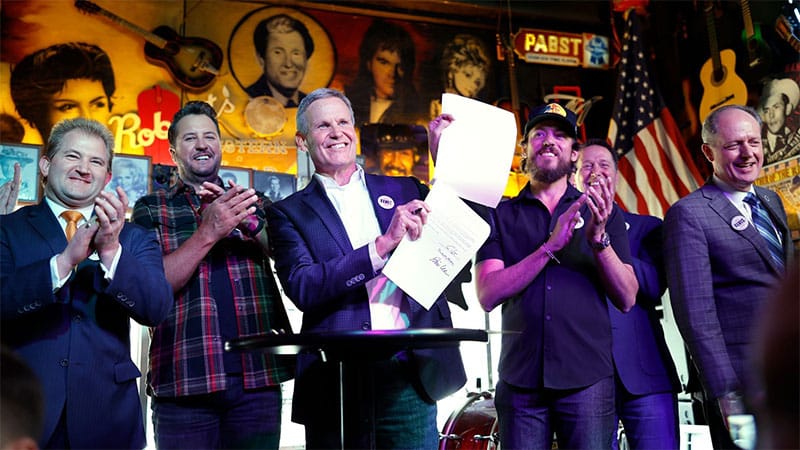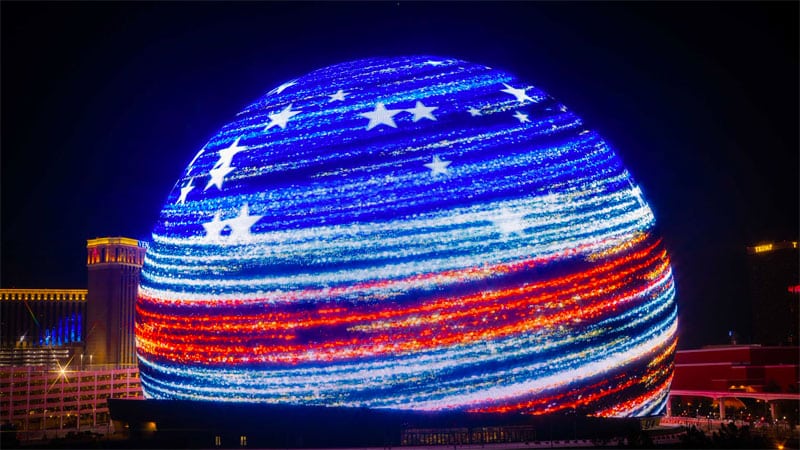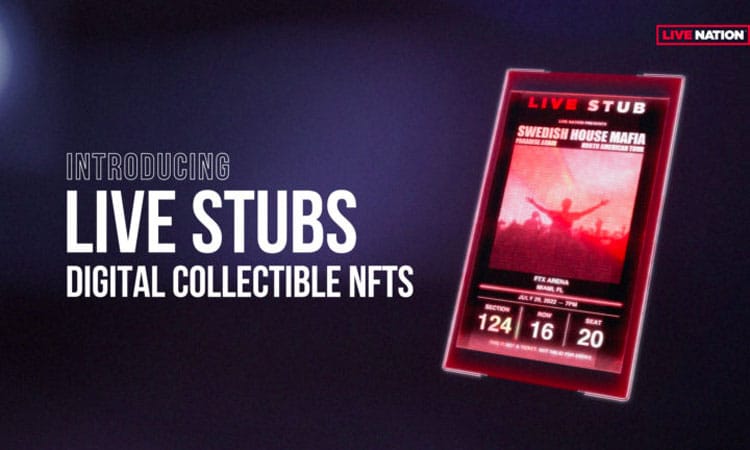The creative community applauds modern voice & likeness protections in AI era
Often progress takes time, but mere weeks after its January 10th introduction, the bipartisan Ensuring Likeness Voice and Image Security (ELVIS) Act was signed into law earlier today (Thurs, Mar 21st) by Tennessee Governor Bill Lee at legendary Lower Broadway honky-tonk Robert’s Western World in Nashville. The ELVIS Act establishes strong protections for every person’s unique voice and likeness against unauthorized artificial intelligence (AI) deepfakes and voice clones.
“Fittingly named after one of the world’s most iconic voices, the ELVIS Act marks a history-defining moment – protecting us all from irresponsible and unethical AI. The Human Artistry Campaign applauds this strong, bipartisan effort to stop unauthorized AI-generated deepfakes and voice clones that steal essential parts of our individuality,” states Dr. Moiya McTier, Human Artistry Campaign Senior Advisor. “The life’s work and irreplaceable contributions of the creative community to our culture deserve safeguards that allow AI technology to be used responsibly without violating anyone’s rights or appropriating their art.”
Five-time Entertainer of the Year and American Idol judge Luke Bryan addressed the crowd saying, “What an amazing precedent to set for the state of Tennessee. The leaders of this are showing artists who are moving here following their dreams that our state protects what we work so hard for, and I personally want to thank all of our legislators and people who made this bill happen. It’s hard to wrap your head around what is going on with AI, but I know the ELVIS Act will help protect our voices.”
Nashville Harbor Records & Entertainment/Harpeth 60 Records’ chart-topping singer/songwriter Chris Janson expressed his appreciation noting, “It’s a pleasure to be here today. If it weren’t for moving to this town and busking up and down the street begging for a gig, I would not be where I am today. It takes real leadership, and it takes a real team coming together to protect us. I came here wanting a voice, wanting to be heard and to sing in a Lower Broadway honkytonk. Do you know what that means to a kid from the Midwest or South Florida or all of these other cities around the world? It means they made it, and now we need to protect our voices from AI-generated deepfakes using our voices, our dreams. I love what I do, I’m so grateful for my job, and I’m grateful for leadership who cares. Thank you for passing the ELVIS Act today!”
Other prominent members of the music community – many who have lent support from the beginning – were on hand to celebrate the ELVIS Act, including Natalie Grant; Bernie Herms; Matt Maher; Maggie Rose; Wendy Moten; Drew Baldridge; Harper Grace; Tennessee Entertainment Commission chair Gebre Waddell; Stax Music Academy/Stax Museum’s Pat Mitchell Worley and Isaac Daniel; Sam Phillips Recording’s Jerry Phillips; Tora Tora’s Anthony Corder and Recording Academy Memphis Chapter Trustee Ken Shepherd.
“From Beale Street to Broadway, to Bristol and beyond, Tennessee is known for our rich artistic heritage that tells the story of our great state. As the technology landscape evolves with artificial intelligence, I thank the General Assembly for its partnership in creating legal protection for our best-in-class artists and songwriters,” adds Governor Bill Lee.
State Senate Majority Leader Jack Johnson (R-27) and House Majority Leader William Lamberth (R-44) shepherded the ELVIS Act to unanimous General Assembly passage (93-0 vote in the House of Representatives and 30-0 in the Senate). Throughout the process, country guitar-slinger Lindsay Ell, five-time Dove Awards Female Vocalist of the Year Natalie Grant, BMI Awards-winning songwriter/producer/Evanescence co-founder David Hodges, nine-time Grammy Awards-nominated Contemporary Christian artist Matt Maher, singer/actor/author Chrissy Metz, hit songwriter/NSAI Board Member Jamie Moore, RIAA SVP of Public Policy Jessie Richard and legendary Christian artist Michael W. Smith spoke to the potential harms of unchecked AI deepfakes and voice clones.
The Human Artistry Campaign is the global initiative for the advancement of responsible AI – working to ensure it develops in ways that strengthen the creative ecosystem, while also respecting and furthering the indispensable value of human artistry to culture. Across 34 countries, more than 180 organizations have united to protect every form of human expression and creative endeavor they represent – journalists, recording artists, photographers, actors, songwriters, composers, publishers, independent record labels, athletes and more. As worldwide support expands, the campaign’s website now features a symbolic new logo that combines a human image with the copyright symbol. The growing coalition champions seven core principles for keeping human creativity at the center of technological innovation.
Today, I signed the ELVIS Act at Broadway’s @RobertsWWorld alongside @LukeBryan, @Janson_Chris & artists from across the state.
TN is the music capital of the world, & we’re leading the nation with historic protections for TN artists & songwriters against emerging AI technology. pic.twitter.com/oA8e4RRdxK
— Gov. Bill Lee (@GovBillLee) March 21, 2024





